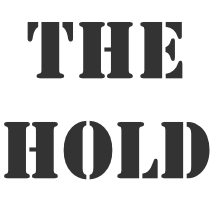© 2014-

Annan Committee Report 1977
The Annan Committee on the Future of Broadcasting, (chaired by Lord Annan) was established in April 1974 to discuss the United Kingdom broadcasting industry, including new technologies and their funding, the role and funding of the BBC, the Independent Broadcasting Authority and programme standards.
The announcement of the Committee’s establishment gave rise to hopes that Britain would soon have a rapid expansion of commercial radio stations – not just local, but regional and national ones as well.
The Committee’s report was published on 24th March 1977. The sixteen members of the Committee had spent two and a half years considering options for the future of broadcasting in Britain. Their 500 page report was based on what Lord Annan described as four ‘fundamental and vital principles’:
- flexibility of structure
- accountability through Parliament to a public which must be given more chance to make its voice heard
- diversity of services
- editorial independence
The Report recommended that:-
The BBC should continue to provide two national television services, four national radio services and external services, but not local radio stations. All BBC revenue should still come from the Television Licence fee and not advertising.
The Independent Broadcasting Authority should be re-
A new body, the Local Broadcasting Authority should be established to take over responsibility for all local radio broadcasting, the development of local cable television stations and licensing hospital and university broadcasting services and local education cable services. The programmes would be provided by organisations (including non-
Another new body, the Open Broadcasting Authority should be established to take responsibility for the fourth national television channel, to be used for educational programmes, Open University broadcasts and programmes from ITV companies as well as other independent producers. Finance for this service was to come from commercially sponsored programmes and educational grants. It was proposed that the OBA should also become responsible for an FM radio service carrying a similar mix of programmes to the fourth television channel.
The Report also contained recommendations about the establishment of a separate fourth television service for Wales, the introduction of teletext services, a fifth national television service and a broadcast traffic information system.
As far as radio is concerned none of the Committee’s recommendations were acted on – the BBC retained (and even ultimately expanded) its network of local radio stations, while the Independent Local Radio (ILR) network of commercially funded radio stations continued to expand under the supervision of the Independent Broadcasting Authority (see footnote below).
FOOTNOTE
The IBA was disbanded as a result of the introduction of the Broadcasting Act 1990, being replaced on 1st January 1991 by the Independent Television Commission (ITC) (which also absorbed the Cable Authority), and the Radio Authority (RAu), which have since been merged with other regulators such as Broadcasting Standards Commission (BSC) and Oftel (Office of Telecommunications) to form one regulator, Ofcom.


HOLD Noun -







Basement
Back to







14